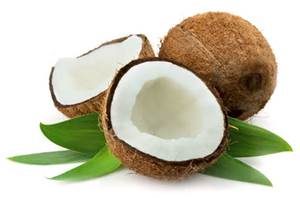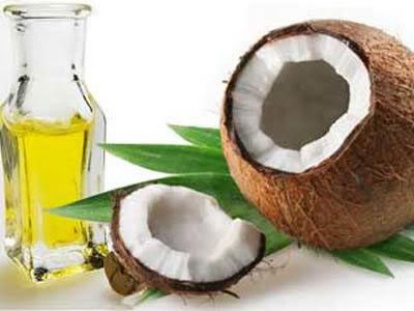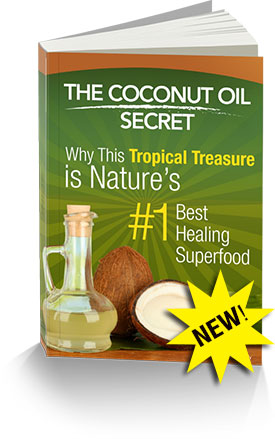
What are the main differences between unrefined vs refined coconut oil?
What is the coconut oil truth? The coconut oil craze trends higher every day, but the swarms of information you read can exhaust you quick. One article says all refined coconut oil is bad for you. Others says coconut oil is overrated, use olive oil instead. What’s the truth then?
Unrefined vs refined coconut oil. What is the difference? We’ll reveal the coconut oil truth about how they differ, their side effects and health benefits and downsides, but first why is there such a coconut craze?
Simple.
Many people believe this food additive and home remedy contains magical powers to improve your health. At the same time others seem more skeptical about the coconut oil truth claiming it to be more a myth than miracle maker.
Let’s take an unbiased look at the possible health benefits of both unrefined and refined coconut oil.
Refined Coconut Oil
What is it?
Refined coconut oil is the kind used most throughout the world and goes through more processing. Depending on the type of processing could produce a final product high in trans fat which raises the level of unhealthy cholesterol (Low-density Lipoproteins: LDLs).
Refined coconut oil producers bleach and deodorize the oil to purify it from germs and fungal spores. They often times use chemical solvents to extract as much oil as possible from the nut’s meat and even hydrogenate it. The hydrogenating is the culprit of creating trans fat which could triple the possibility of heart disease according to some sources I researched.
The reason producers put coconut oil through this process is to commercialize it in order to elongate shelf life and it clean it up.
The benefits, however, of this process results in coconut oil which lasts a very long time, is versatile for cooking since you can use it for recipes that reach temperatures above 450 degrees Fahrenheit (232.22 Celsius), is less expensive than unrefined coconut oil and does not taste like coconut (if you do not like the taste of coconut).
Unrefined Coconut Oil
Unrefined coconut oil does not go through the bleaching, deodorizing, chemical separation nor hydrogenation processes. Instead the oil gets extracted from the fresh coconut meat, not from the dried meat. Unlike refined coconut oil, refined coconut oil does not undergo high heat separation processes.
One of two processes extract the oil from the coconut oil. 1) Quick Drying machine expresses the oil from the coconut milk after drying it; 2) Wet Milling expresses the oil from the fresh coconut meat boils, ferments it, then separates it with enzymes.
The process is pure and keeps the coconut oil at its most pure state.
This type of coconut oil tastes still has the fresh coconut flavor and contains no trans fat, this results in raised “good cholesterol” HDLs (high densisty lipoproteins).
Coconut Oil Truth: Benefits in Both Unrefined and Refined Coconut Oil
Research from the late Dr. Mary Enig, a nutrition research scientist from the Weston A. Price Foundation, claims the medium-chain fatty acid, lauric acid helps produce multiple health benefits.
Consumption of both types of coconut oil result in disease fighting effects (antiviral, antibacterial, anticancer, immune boosting).
The difference though is that unrefined coconut oil contains more phytonutrients. The bleaching and heating process in refined coconut oil damages some of the nutrients.
Pros and Cons List: Unrefined Coconut Oil vs Refined Coconut Oil
Refined Coconut Oil
- Less Expensive than unrefined coconut oil
- No coconut flavor (does not alter the flavor of the food you cook with it).
- Cleaner than Unrefined Coconut Oil
- Easier to Find, Sold in More Places
- Contains trans fat which raises “bad cholesterol” levels due to the hydration process
Unrefined Coconut Oil
- Contains more phytonutrients to prevent disease
- Does NOT contain trans fat which raises levels of “good cholesterol” HDLs
- More expensive, more difficult to find
- Less hygienic since no contains to purifying additives
Unrefined vs Refined Coconut Oil: So which should I choose?
If you like the taste of coconut (like I do) then choose unrefined coconut oil, otherwise, use refined ones. Unrefined contains more nutrients, but check the label of refined ones for chemical-free (or the least amount of chemicals possible) cleaning production and lack of hydration processing.
Refined coconut oil serves you better for higher temperature cooking (above 450 degrees Fahrenheit).
If your sole purpose for using coconut oil in your diet is to prevent disease and stay healthy then choose unrefined and also check out our suggestion in the last section of this post.
The Coconut Oil Truth: More Unrefined Coconut Oil Benefits
Coconut oil use in cooking and food preparation is trending as people look for alternative ways to prevent heart disease and cancer, lose weight and just feel better.
We came across an ebook that packs information in a condensed 68 pages in a easier-to-understand format. After researching the coconut oil truth and its advantages and disadvantages it became obvious real quick just how overwhelming and confusing the topic can get.
Advocates for and against the benefits of coconut oil seem to contradict each other at times. However, I’d recommend doing some of your own research (without overwhelming yourself) combined with some of the packaged research already done for you.
We will look for other resources to share with you. Check out this coconut oil health benefits ebook we reviewed.
Click here to read our review of “The Coconut Oil Secret”.
Sources:
http://www.webmd.com/vitamins-supplements/ingredientmono-1092-coconut%20oil.aspx?activeingredientid=1092
http://healthyeating.sfgate.com/refined-vs-unrefined-coconut-oil-2296.html
http://healthimpactnews.com/2014/the-coconut-oil-myths-exposing-some-common-myths-surrounding-coconut-oil/
DISCLAIMER: THIS WEBSITE DOES NOT PROVIDE MEDICAL ADVICE
The information, including but not limited to, text, graphics, images and other material contained on this website are for informational purposes only. The purpose of this website is to promote consumer understanding and knowledge of a variety of health topics. It is not intended to be a substitute for professional medical advice, diagnosis or treatment. Always seek the advice of your physician or qualified health care provider with any questions you may have regarding a medical condition or treatment and before undertaking a new health care regimen, and do not disregard professional medical advice or delay in seeking it due to something you have seen on this website.


